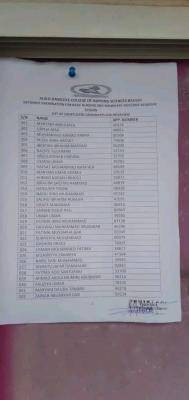
Tick-Tock, Your Time is Running Out
Are you one of those students who recklessly postpones your daily studying? Are you procrastinating a bit too long, losing the sense of time? Do you find it difficult to memorise an abundance of information within a very limited time? Do you have poor time-management skills or do you usually exam-cram? If you said yes at least once, keep reading. I am going to provide you with some easy tips and tricks on how to study for exams with limited time. Adopting them during your exam preparation, you will manage to handle approaching exam deadlines and make up for the missing time. Memories of restless nights in front of a screen with coffee mugs on the side and droopy eyes fighting with sleep and study will be history.
Prepare a Study Plan for Your Exams
It’s a number one rule, that before every big task, you should have a plan. Especially when time is running out, you should create a to-do list and chunk out your study periods. When you study for exams with limited time, you have to work more efficiently, prioritize tasks and even set task deadlines for yourself. A pile of chapter notes with concepts and theories will not be magically implanted into your brain all at once. Therefore, you need to organise your study material based on priority to optimise your studying. Ideally, you should have started studying days ago, but since you delayed it for a bit too long, you must act flexibly and smartly now.
Since morning is the time of the day when we are more alert, our brains function with better speed and accuracy. Therefore, use this time to your advantage starting with the most difficult tasks first thing in the morning. Have a coffee and start with the most complicated, boring or even nerve-wracking subject you have been avoiding for so long. The emotional relief you get once you finish with the first task gives you the courage to accomplish the next ones. Besides, it would be beneficial to have a look at past papers and concentrate on hot topics that might be included. Organisation and prioritisation are the keys to studying for exams with limited time.
Avoid Cramming
Cramming is what might cost you a lot of time during your exam study. Specifically, exam cramming is the worst thing you can do when your time is running out. Students consider it an easy option due to their procrastination. Based on this article, cramming is defined as an attempt “to stuff a load of information into your short-term memory in time for an upcoming exam. This has been proven to increase stress levels and can lead to panic and anxiety, making it a lot harder to take in information.” Also, it usually causes a reduction in sleep time. Students tend to go to bed very late or get up too early hoping to stuff it all in their brains within a few hours. That’s why you need to develop a regular study schedule on time and stick to it as per my very first tip.
Memorisation Tips for the Approaching Exam
You are still running late. Only a few hours left till entering the exam room. You studied well and finally understood those complicated theories and concepts, but it’s not enough. You have to memorise them to make sure they will pop up in your brain when you need them the most. In other words, you have to learn them by heart. I know that learning by heart is quite an intimidating and stressful task. However, with the below techniques, you can securely lock your knowledge into your tiny memory box that is already overflowing with several pieces of information. The following techniques have been proven to boost memory and enhance recall.
Use Mnemonic Tools
Mnemonics are memory devices that help information retention in our memory. They are not actual tools or devices but rather processes and strategies for memorisation. A mnemonic could be a rhyme, a song, a joke or an acronym with which you associate a term you need to remember. There are also visual mnemonics, such as flashcards, associated imagery, and mind maps. In this way, you can link ideas to create visual stories relevant to the information you need to memorise.
Elaborate and Repeat
This is a great way to lock knowledge into long-term memory and not forget it right after the exam. Reading about a concept or term in a more detailed and thorough manner from various sources would be helpful. Repeating this process will help you recall the information. It shouldn’t be a superficial grasp of it but a deep dive into it. Later you can even describe and further explain it to someone initiating a discussion regarding the matter. In this way, receiving others’ opinions and views will facilitate and consolidate your understanding of the subject in your memory.
Visualise
Visualising information helps you to creatively group your ideas more clearly and concisely, eliminating unnecessary details. Highlight, draw, note down your ideas and concentrate on them for a few moments to keep them in mind. Charts and figures are also another way to do so.
Relate and Recall
As strange as it might sound; when you learn new information, you should try to connect it to a fact you already know. Doing this increases recall. To create connections and relationships between two different notions is of course not an easy process. Nevertheless, when you have limited time available to study for exams, that is an effective way to seamlessly shape your knowledge with both new and old information. You just need a common idea which bonds them together.
Read out Loud
For some, it might seem annoying or even tiring, however, a growing amount of research highlights the impact of reading aloud on memory. According to a BBC article, Colin MacLeod, a psychologist at the University of Waterloo in Canada, has named this phenomenon the “production effect”. “It means that producing written words – that’s to say, reading them out loud – improves our memory of them”. Next time you read extensive theoretical texts with no success, read them out loud. Most importantly, try to listen to your own words and the meaning they communicate.
Study for Exams with No Distractions
The ambience of your study zone plays a major role in your performance, especially when you have limited time. Hence, the best you can do is to choose a quiet, distraction-free place to practise all the above study techniques. Put your mobile on silent, remove any unwanted items from your desk and roll up your sleeves to get the job done.
To Wrap it Up
Studying for exams with limited time is not the ideal student scenario but sometimes it’s unavoidable. When things get a little bit tight, remember that organisation and prioritisation always come first. As soon as you set a plan, shelter yourself in a quiet place and study to encode meaning in your memory. Use the technique that suits you best and explore more ways to improve and train your memory for last-minute studying. Soon, you will notice an overall improvement in your academic performance, too.
Was this article helpful enough to handle your next exam period and avoid last-minute panic? If yes, feel free to visit our blog for more interesting topics about university-related subjects!



